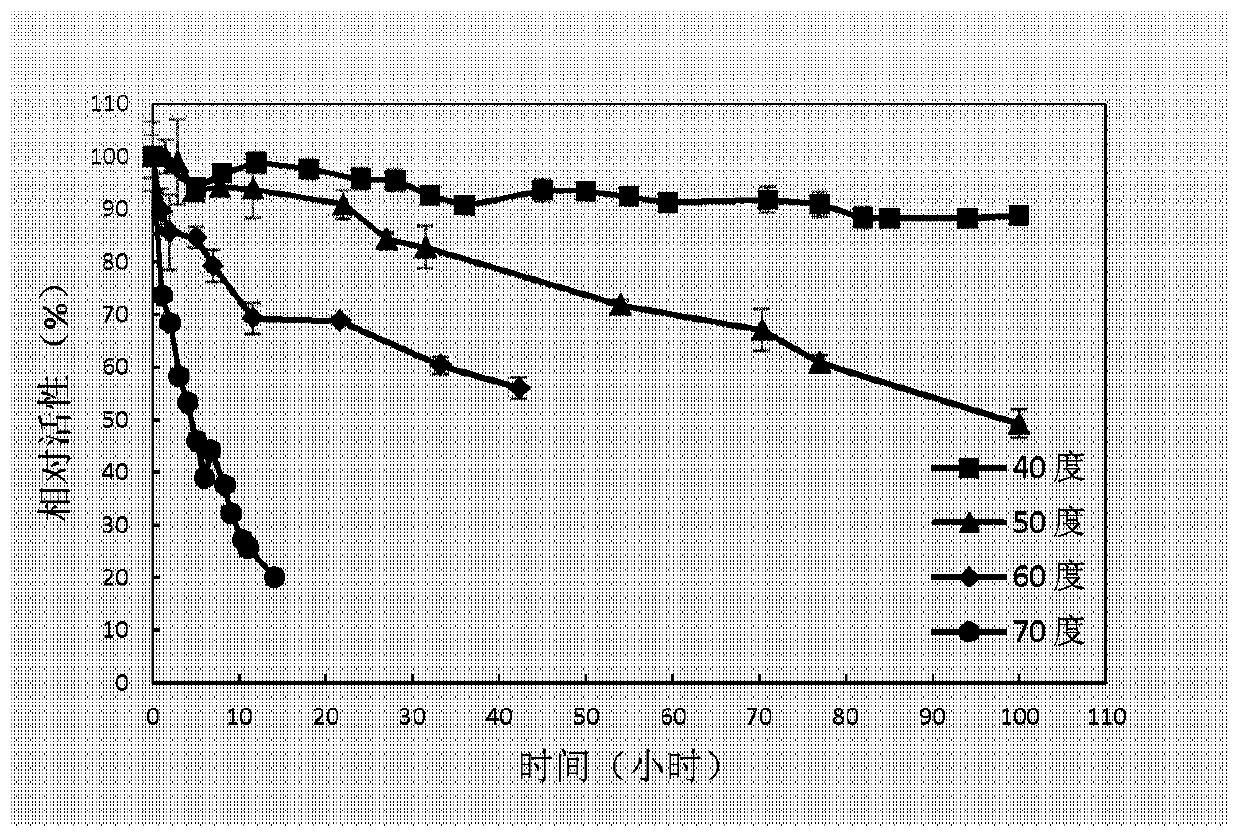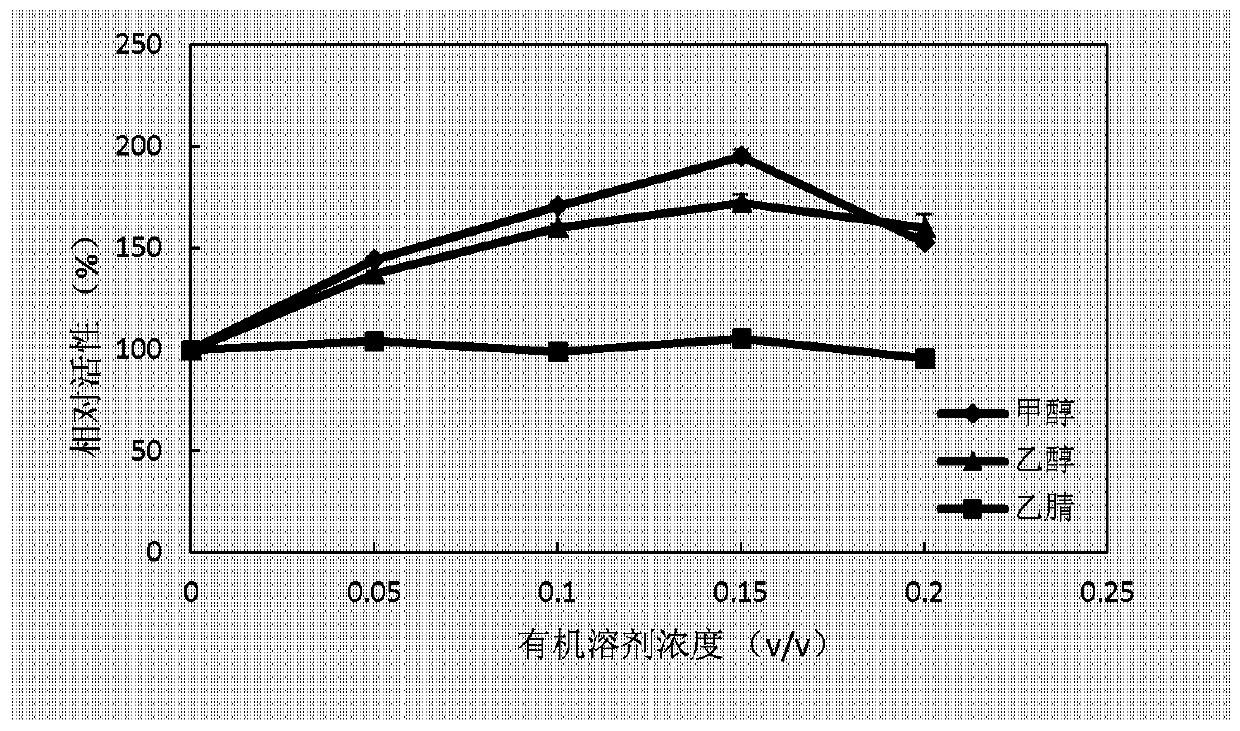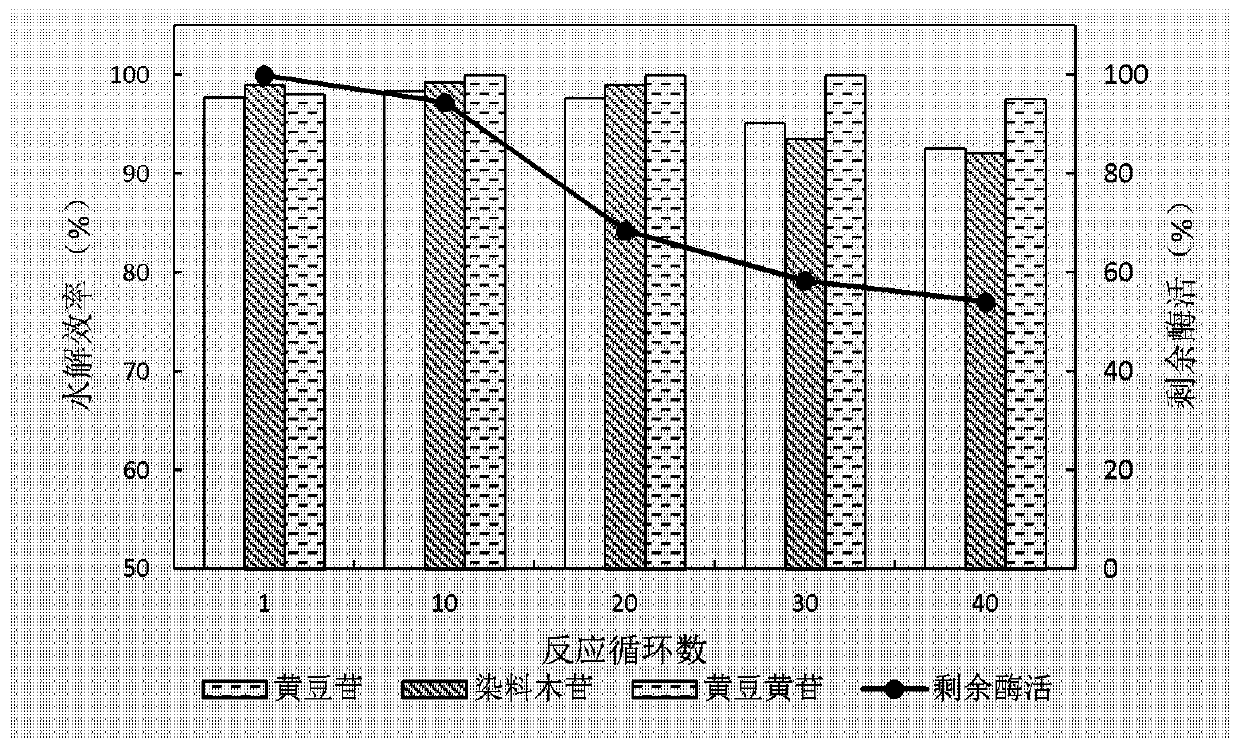A method for efficiently hydrolyzing soybean isoflavone glycosides
A hydrolysis reaction, glucosidase technology, applied in the directions of hydrolase, chemical instruments and methods, biochemical equipment and methods, etc., can solve the problems of expensive immobilization carrier, cumbersome immobilization process, unfavorable large-scale use, etc.
- Summary
- Abstract
- Description
- Claims
- Application Information
AI Technical Summary
Problems solved by technology
Method used
Image
Examples
Embodiment 1
[0068] Embodiment 1 Fusion expression of CBM3 and β-glucosidase gene
[0069] 1. Construction of fusion gene expression vector
[0070] Using the pUCBM plasmid as a template (Wan et al.2011) using Primer STAR HS DNA polymerase (Dalian Bao Biology), using Xba I-CBM3-F, Xba I-CBM3-R (SEQ ID NO: 1, 2) as primers The CBM3 gene will be amplified by PCR and digested with Xba I (Thermo Fisher Scientific). The plasmid pPICZaA / bgl1 containing the BGL1 gene was digested with Xba I (Thermo Fisher Scientific) and ligated with CBM3 using T4 ligase to obtain the fusion expression plasmid pPICZαA / bgl1-cbm3.
[0071] The sequences of primers XbaI-CBM3-F and XbaI-CBM3-R are as follows:
[0072] SEQ ID NO: 1: AGTTCTAGACGGTTCTGGATCTGGTTCTGG
[0073] SEQ ID NO: 2: CGTTCTAGAATGGTTCCTTACCCCAAACC
[0074] The specific operation is as follows:
[0075] ①PCR amplification system of CBM3
[0076]
[0077] PCR program
[0078]
[0079] ② Xba I digestion of CBM3
[0080]
[0081] Enzyme ...
Embodiment 2
[0116] Embodiment 2 Immobilization of recombinant glucosidase and the influence of temperature and organic solvent on immobilized enzyme
[0117] 1) Immobilization of recombinant glucosidase and determination of its kinetic constants
[0118] 1. Add glucosidases with total enzyme activities of 3.5U / ml, 4.0U / ml, 4.8U / ml, 5.7U / ml, and 6.2U / ml respectively into 2mg phosphoric acid-swellable amorphous cellulose. Combine at 25°C for 30 min, centrifuge at 12000 g for 5 min, separate the supernatant and wash the precipitate twice with 50 mM citric acid-phosphate buffer (pH 5.0), and dilute to 1.5 mL.
[0119] 2. Measure the enzyme activity in the supernatant of the above-mentioned recovery, according to the Langmuir equation
[0120]
[0121] Wherein Ea is the glucosidase (U / ml) of adsorption; W max is the maximum adsorption capacity of β-glucosidase (U / g); E f is the unbound β-glucosidase (U / ml). The maximum immobilization ability of phosphoric acid swollen amorphous cellulos...
Embodiment 3
[0132] Example 3 Research on Hydrolysis of Soybean Isoflavones by Immobilized Recombinant Enzyme
[0133] 1) Extraction and hydrolysis of soybean isoflavones
[0134] 1. Dissolve 5 g of coarse soybean isoflavone powder (Xi'an Ruilin Biotechnology Co., Ltd.) in 20 mL of 80% ethanol solution in a 50 mL beaker.
[0135] 2. The above mixture was ultrasonically dissolved in a 130W ultrasonic instrument for 30min.
[0136] 3. Centrifuge at 5000 g for 10 min to collect the supernatant.
[0137] 4. Filter the supernatant with a 0.45 μm filter membrane to obtain soybean isoflavones extract (main components: genistin, daidzein, daidzein, genistein, daidzein, glycitein).
[0138] 5. Add 167 μl of the above extract into 333 μl of a reaction system containing 0.1 U of immobilized enzyme, hydrolyze it in a water bath at 50°C for 75 minutes, and then take the reaction solution for HPLC analysis. The test results show that the immobilized enzyme can convert genistin, daidzein, The daidzein...
PUM
 Login to View More
Login to View More Abstract
Description
Claims
Application Information
 Login to View More
Login to View More - R&D
- Intellectual Property
- Life Sciences
- Materials
- Tech Scout
- Unparalleled Data Quality
- Higher Quality Content
- 60% Fewer Hallucinations
Browse by: Latest US Patents, China's latest patents, Technical Efficacy Thesaurus, Application Domain, Technology Topic, Popular Technical Reports.
© 2025 PatSnap. All rights reserved.Legal|Privacy policy|Modern Slavery Act Transparency Statement|Sitemap|About US| Contact US: help@patsnap.com



